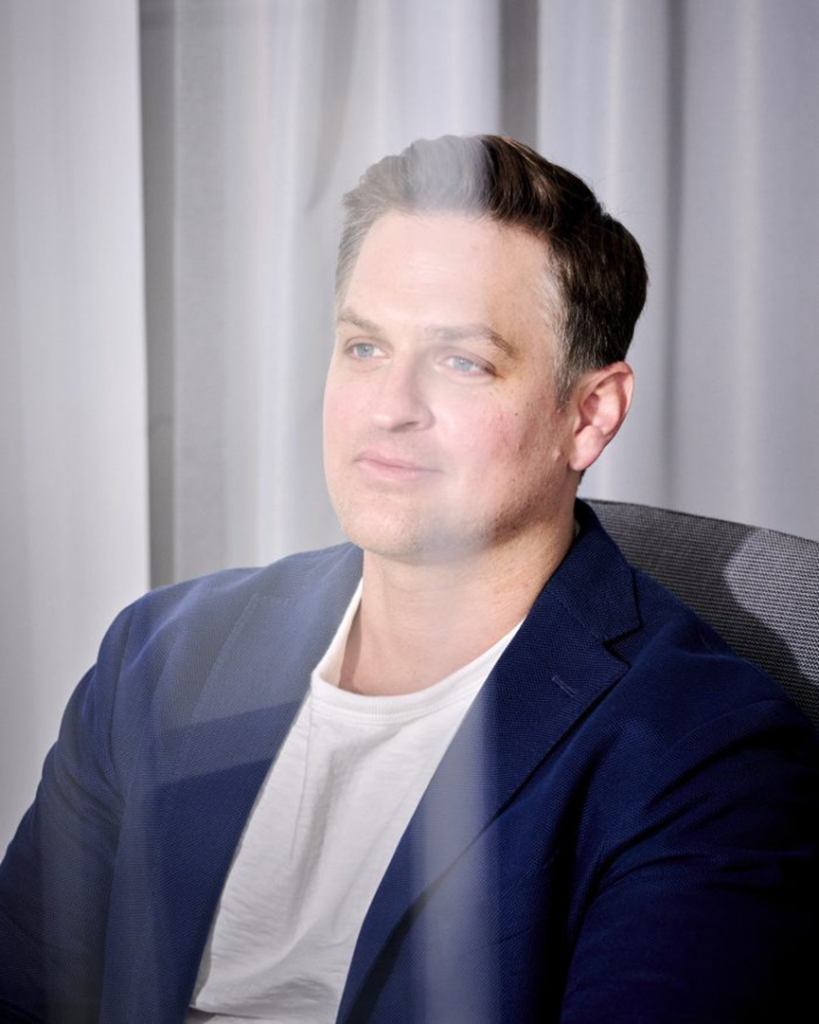In that year, Leonard Guarente, at only 38 years old, was already a tenured professor at the Massachusetts Institute of Technology (MIT), and he was determined to focus on one of the most tantalizing questions in biology: how to delay aging.
More than thirty years later, at 72, Guarente is regarded as the godfather of the burgeoning longevity movement. His discoveries in genetics have been published in top scientific journals. He has built one of the most important ideas in the field, mentored some of the most influential scientists, and helped create a company that has launched a series of popular nutritional supplements.
Today, the field he helped establish has gone from the fringes to the spotlight of the scientific stage. In recent years, the field has attracted billions of dollars in investment and is likely to gain more attention during the Trump administration. However, the science behind longevity remains highly controversial, with many scientists in the field engaged in heated debates, and many of them starting companies based on immature research—Guarente finds himself at the center of this storm.
Critics of his theory include former students who are now his competitors. In the murky longevity market, many people are either selling or promoting their own supplements or advocating other so-called anti-aging therapies. Various longevity products sometimes boast clinical evidence in their advertisements, but the research is typically limited in scale, preliminary in nature, and short-term—without any evidence proving the safety of long-term use. Consumers are often unable to distinguish science from marketing.
Guarente believes that a family of genes called sirtuins controls the aging process, and the molecules that help them function decrease as people age. He claims that keeping these molecules at youthful levels will help maintain sirtuins’ activity longer, thereby delaying aging. In 2014, he co-founded Elysium Health, a company that sells longevity supplements for \$40 to \$60 per bottle. He claims that these supplements can activate sirtuins.
Guarente says the board of Elysium includes seven Nobel laureates, signaling the seriousness of the company’s work. He asserts that the research conducted by Elysium, his MIT lab, and other respected scientists proves that sirtuins do indeed affect lifespan.

Guarente co-founded Elysium in 2014 to produce supplements.
In the 1990s, Matt Kaeberlein, then a PhD student in Guarente’s lab, proved that a sirtuin gene in yeast could extend lifespan. He continued his research and co-authored a paper in 2011 questioning whether sirtuins affect the lifespan of worms and flies. He said that despite the U.S. National Institutes of Health (NIH) and private funders spending hundreds of millions of dollars researching sirtuins over the past two decades, there is still insufficient evidence that they play a crucial role in aging.
“I don’t think anyone can seriously say we have conclusive data, we have clinical trial data, showing that these things work for the people who buy them,” Kaeberlein said. Kaeberlein, now CEO of the medical technology company Optispan, is also the co-director of a trial funded by the NIH testing whether rapamycin, a drug used to prevent organ rejection in transplant patients, can extend the lifespan of dogs.
“In the anti-aging field, everyone has their favorite theory. You’re going to criticize theories you don’t agree with,” Guarente said.
In frontier science, it’s not uncommon for a scientist’s landmark discovery to be questioned by former students and competitors. But with the increasing attention on the longevity anti-aging movement and its ties to the Trump administration, the stakes involved are rising.
Robert F. Kennedy Jr., now Secretary of Health and Human Services, has stated that he uses an anti-aging therapy. Jim O’Neill, the deputy secretary of health and human services nominee, was previously the CEO of a non-profit that funds longevity and anti-aging research.
Some scientists pushing the movement are calling for reforms in funding and regulation to accelerate the development of anti-aging interventions. According to data from research and media company Longevity.Technology, the longevity industry attracted \$55.7 billion in global investment over the past decade.
Guarente says that some critics of sirtuins ignore evidence that points to a bright future because they support other interventions or don’t believe scientists can successfully delay aging. “It’s a matter of perspective—when you look at the progress of a field, do you see it as a half-empty glass or a half-full glass?” he says.
Early Research
Guarente grew up in a working-class family in the coastal town of Revere, Massachusetts. At his mother’s urging, he spent three hours a day commuting to Boston College High School, a Jesuit-run school, where he graduated at the top of his class.
He earned his bachelor’s degree in biology at MIT, his PhD at Harvard University, and conducted postdoctoral research before returning to MIT in 1981. He began studying how genes in cells are turned on and off. He says that after obtaining tenure at 34, he wanted to shift his research focus to a problem that might offer the opportunity to solve a major scientific question.
In 1990, two biology graduate students interviewing for work in his lab told him they wanted to look for genes that might provide clues about aging. Biologists usually start with yeast, which is easy to culture in the lab, and then move to more complex organisms. After the students showed promising results, Guarente became intrigued. Eventually, his entire lab focused on aging.
His lab found that without sirtuins, cells age more quickly—and that sirtuins need a molecule called nicotinamide adenine dinucleotide (NAD) to perform several key functions, such as repairing DNA and producing energy. Many scientists (but not all) believe that NAD levels decline as we age.

Guarente’s lab, in a photo taken in 1998.

Guarente’s office in NYC.
Guarente’s concept of creating Elysium was that if NAD levels were increased to youthful levels, sirtuin activity could be maintained, slowing aging and extending lifespan.
Guarente began pursuing longevity as both a scientific and business goal early on. In 1999, he co-founded Elixir Pharmaceuticals, but the company shut down before it could bring an anti-aging drug to market.
In 2007, he became co-chairman of the scientific advisory board of Sirtris Pharmaceuticals, a company he co-founded with former student David Sinclair. Sinclair, now one of the most famous and controversial figures in the field, trained in Guarente’s lab from 1995 to 1999 before moving to Harvard. At Harvard, he proposed the idea that activating sirtuins could benefit health.
Sirtris was then developing a resveratrol formulation. Resveratrol, a compound found in red wine, showed promise for extending the lifespan of worms and mice on a high-calorie diet. In 2008, pharmaceutical giant GlaxoSmithKline (GSK) acquired Sirtris for \$720 million. GSK stopped a trial of the drug in cancer patients in 2010 for safety reasons and later announced it would shut down Sirtris in 2013. Guarente continued to consult for GSK on sirtuins for a year or two after that.
Searching for CompoundsZX
In 2012, Guarente received a call from Eric Marcotulli, a partner at Sequoia Capital. Marcotulli had done a case study on Sirtris while at Harvard Business School. His professor had asked students to consider various options, including selling a resveratrol supplement directly to consumers or partnering with a pharmaceutical company.
Marcotulli, who had been a college wrestler and had taken fish oil, vitamin D, and other supplements for years, said he was one of the few students who thought Sirtris should sell resveratrol as a supplement.
Marcotulli was keen to explore natural compounds that might slow aging. Both Marcotulli and Guarente said they wanted to conduct rigorous testing to build consumer trust. After further discussions, Marcotulli asked Guarente which compound seemed the most promising.
“I’d bet on an NAD-boosting supplement,” Guarente said.
In 2014, they co-founded Elysium with another partner. Elysium’s first product, called “Basis,” contains nicotinamide riboside and pterostilbene. Nicotinamide riboside is a B vitamin and a precursor to NAD, and pterostilbene is a compound found in blueberries. Elysium claims that both substances activate sirtuins.

Elysium’s CEO Eric
Today, Elysium offers seven different supplements. Guarente says he recruited Nobel laureates and other renowned scientists to join the advisory board to lend authority to the company’s work and provide guidance.
“Renny wanted to build an excellent scientific advisory board,” said George Church, a Harvard geneticist who served on the board until the end of last year.
Church said he joined the board because he valued Guarente’s commitment to clinical trials. “Typically, I wouldn’t participate in nutritional supplement research because I think their effectiveness is low,” he said.
Church’s projects include attempts to revive the woolly mammoth. In 2018, he co-founded his own anti-aging company and is working on gene therapies, which require FDA approval. “I think aging is a much more complicated issue. I’m doubling down on studying gene therapies,” he said.
Elysium also launched a supplement called “Matter,” which the company claims can slow brain aging. It was developed in collaboration with the University of Oxford and A. David Smith, a professor emeritus at Oxford and a member of Elysium’s scientific advisory board. Matter contains B vitamins, omega-3 fatty acids, and antioxidants.
The 86-year-old Smith says that he once led a research group at Oxford University to study whether high doses of B vitamins could slow the cognitive decline in a group of elderly patients diagnosed with mild cognitive impairment. In 2013, he co-authored a paper that reported the vitamins seemed to slow cognitive decline in those with elevated levels of the amino acid homocysteine, which is linked to an increased risk of certain health issues.
Elysium states that the formula for Matter is also based on other scientific research showing that it may benefit cognitive health in healthy individuals.
Elysium’s first clinical trial involved 120 healthy elderly participants who took a single or double dose of the Basis supplement or a placebo. A 2017 study published by the company showed that the NAD levels of the participants who took either dose increased within eight weeks compared to those in the placebo group.

Gulent (center) speaks with other scientists in a lab at MIT.

Experimental glassware in Gulent’s lab.
Jonas T. Treebak, a physiologist at the University of Copenhagen, collaborated with manufacturers, including Elysium, to study NAD-boosting supplements. He said that, so far, the data remains limited. He added that in order to determine whether these supplements truly help slow the aging process, researchers would need to track participants who take them for decades.
He said, meanwhile, consumers browsing company websites are likely to believe that taking NAD-boosting supplements benefits them. “They are willing to try it,” he said.
Gulent believes it would be unfair to ignore promising results due to uncertainty. “We’re heading in a good direction now, and future data will be stronger, maybe not in all areas, but certainly in some important areas of human health,” he said.
The Buck Institute for Research on Aging, an independent research organization located in Novato, California, is led by Dr. Eric Verdin, who has worked on silent information regulator factors and NAD research for over 25 years. He has also founded or co-founded several companies focused on longevity, including a new company developing therapeutic plasma exchange technology, which involves replacing a patient’s plasma as a potential anti-aging treatment.
He says that silent information regulator factors remain a promising target worth investigating. However, he added, “The more you study something, the more you realize its complexity. There is no magic pill—though we all wish there were something magical to solve all your problems and prevent aging.”
Regulatory Issues
Selling nutritional supplements that other companies are testing as drugs is prohibited by the FDA, and this controversy is one of the challenges faced by supplement companies, including Elysium.
Elysium has a supplement containing nicotinamide mononucleotide, a component of NAD. Metro International Biotech—a company co-founded by Gulent’s former disciple Sinclair—is developing nicotinamide mononucleotide with the hope of someday gaining FDA approval for treating aging-related diseases like Alzheimer’s. In 2023, the FDA stated that, under current regulations, nicotinamide mononucleotide should not be marketed as a supplement. This is the position supported by Metro.
The Natural Products Association, an industry group representing retailers and supplement manufacturers including Elysium, sued the FDA last year, asking the agency to clarify the regulations and allow the continued sale of nicotinamide mononucleotide. A judge has ordered the FDA to respond by July. A female spokesperson for the FDA said the agency would not comment on the lawsuit.
Elysium currently sells nicotinamide mononucleotide supplements through its website. A female spokesperson said Metro’s position is “driven entirely by profit, as the company believes it can gain more profit from this.”
Metro stated that, before supplement companies can legally sell nicotinamide mononucleotide, it has already conducted FDA-approved trials on it.
Sinclair, a member of the company’s scientific advisory board but not in a management position, said, “I believe people should have access to both supplements and drugs, but they should be tested for purity, safety, and efficacy.” He stated on X that getting nicotinamide mononucleotide approved by the FDA for treating aging-related diseases is in the best interest of patients.

David Sinclair speaks on stage. Image Source: JEMAL COUNTESS/GETTY IMAGES FOR TIME
Gulent and Sinclair continue to collaborate, including co-running their company, Galilei Biosciences, which they founded in 2017 and is also involved in silent information regulator factor research.
Gulent continues to write papers on the connection between silent information regulator factors, NAD levels, and longevity, as well as deliver related talks. In 2023, Elysium launched a long-term study on aging, aiming to recruit 25,000 participants to explore the relationship between lifestyle, health, and aging. According to Elysium, around 2,500 participants have joined the study so far, some of whom have shared blood test results and medical histories.
Gulent said that despite facing some challenges in the past, research has confirmed the important role of silent information regulator factors in the aging process. He pointed out a 2022 study reporting that a mutation in a silent information regulator factor gene found in some centenarians might be one of the reasons for their longevity. Galilei is attempting to develop a drug that activates this gene.
Gulent remains committed to his ideas about longevity science.
“It’s a bit more complicated than those inventions that bring progress,” he said. “A car is something tangible. It proves itself. Longevity science can’t speak for itself. It needs a spokesperson.”





1 Comment